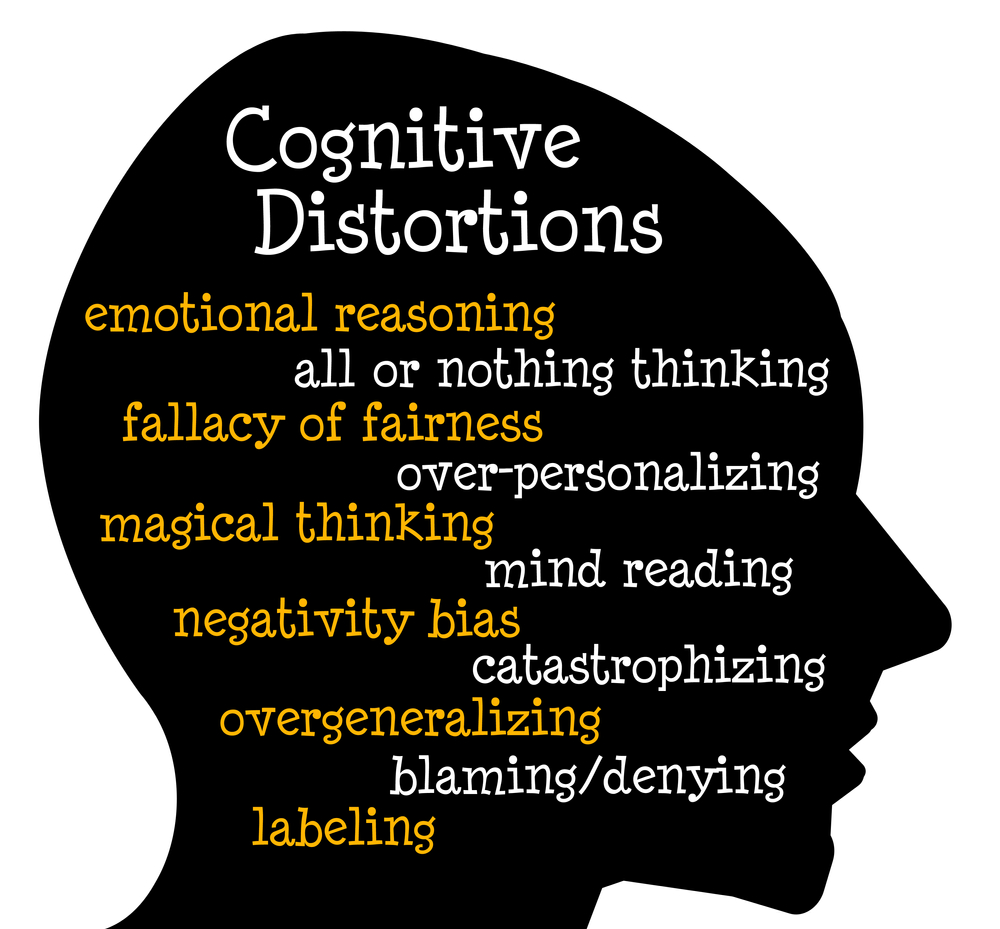Mary Ann (00:00):
All right, we’re going to jump right into that real conversation. And we’re going to talk about internal dialogues today. It’s not exactly anybody’s favorite subject, but I can guarantee that when you begin to pay attention to these dialogues, you can start figuring out like what’s going on with me. What are the feelings that get triggered? What are the circumstances that they get triggered in the most? And how do I begin to allow God to transform those feelings and show me what it is I need to be addressing in my life so that I can break free of that trigger or reduce that trigger, whatever it is that needs to be happening in my life. So a couple of things that I started doing years ago, um, and I typically do this seasonally in my life. It’s not like a regular practice, but if something’s really bugging me or I’m going, going through some kind of big adjustment in my life that creates a lot of internal dialogue that feels burdensome.
Mary Ann (01:02):
I will just jot down some information. And generally the information kind of is what is the circumstance? Who are the people that are involved? What are the primary emotions that I feel? How have I tried to address that in the past or in the present, and it’s not working and who is my resource? What is my resource to learning new information about processing this and really the top of the list and at the bottom and all the way through is asking for God’s guidance through his word, through prayer, through the relationships that we may have with believers in our lives that can bring wisdom and discernment into the conversation, but it equals, I ha in order to do those things, I have to really start to pay attention. I have to, I have to be committed to my own mental health, to conserving my emotional energy and to building myself up into who God called me to be.
Mary Ann (02:07):
Right. So those are just ways that I start to dissect. So I did this reading certainly around, um, the subject of retirement. And I know that sounds strange because I’m not even 50, but I have a lot of friends that are older than me. And this topic just comes up all the time with people. Like, how are you planning for your retirement? What are you planning to do in your retirement? I’m planning to retire at this age. And I don’t know why, but it is just super stressful to me. And it’s not really that I don’t have a retirement plan or I don’t have a dream for my future. It just is more like anxiety producing, I guess. So I decided to write it down. And then of course I decided to write it down as to, you know, are the circumstances that these conversations typically happen in what is, what are the false beliefs that I have going into that?
Mary Ann (03:08):
And while I’m listening and experiencing those conversations, and then I began to pull apart, like, what are the emotions that got triggered in this? And one of the things that I think conversations about people’s futures about their relationships, about their vacations and material things, their bank accounts, their, I mean, my gosh, the list could just go on and on can trigger jealousy. But what I started to realize was there was this weird nuance that started to happen, where it wasn’t quite jealousy, it was something else. And the something else was this dreaded word called envy. And once I started thinking about the difference, which I’m going to tell you about in a second, I started to realize that, you know what, I very rarely am jealous. I have this tendency to be much more envious of people than I am jealous of people. And so let me tell you the difference, okay.
Mary Ann (04:15):
Jealousy is about a feeling of protectiveness or insecurity over being replaced or losing something. And it typically is what their APIs we’ll call a three person issue. So the three person issue is you, the object you fear losing maybe a significant other, a family member, you know, all number of things. And then the threat, right. And jealousy. I think we can all point out when we see this in movies or when we have conversations with people, start paying attention, it’s all about loss. And it’s all about the insecurity of being replaced, but that is not the same as envy. Envy is a much more toxic feeling. It doesn’t contain a sense of betrayal or a fear of abandonment, but rather a sense of lack while both, I think can lead to toxic thinking, envy is built on a longing to have something somebody else has, um, or the perception of they have something that you wish you had.
Mary Ann (05:29):
And it can be a whole range of things. I think obviously we live in a world now where material things are elevated with influencers and, um, social media and things like that, but it also can be, and it is elevated in social media for the same thing about relational things, or people’s perceived emotional States. Um, a lot of times when I was younger mind swirled around all three of these. And so, um, but for me, probably the biggest one was relational. I, I didn’t really have a hard time making friends, but I had a hard time going deep with people because of my insecurities. And so I kind of led out of my insecurity and was meteor way more, um, dependent on people than I, and then I am now I didn’t have great boundaries. And so I, it appeared to me that other people have, yeah, is ease in relationship that I just didn’t have.
Mary Ann (06:41):
And they always seem to be on the top of a party list in my mind anyway, because I certainly don’t know people’s party lists, but in my mind, I was like, I’m the ad-on, I’m the extra I’m fringe. Whereas I would be out in a social situation and I would see somebody that I might say, Oh, that person is in the center of everything or a term I’ve used recently to describe, um, people is the Lynch pin. I just really wanted to be important and somebodies mind I wanted to be chosen. And so I would find myself looking around and becoming envious of other people and their relationships and their lives and why wasn’t it easy for me and what’s wrong with me. And that battle of envy the way sometimes I would deal with that. And I’ve seen other people in therapy deal with it the exact same way.
Mary Ann (07:38):
So it must be pretty common is to develop a critical narrative about the other person in order to make ourselves feel better. And sometimes we say that narrative just in our minds, it’s an internal thing. And sometimes we say it externally to verify that other people see this, have the same experience and agree with what I’m feeling. And so an example of something like that might be is, and this is literally made up, okay, I’m not, this is not how it goes in my mind, but let’s just say my girlfriend goes out and buys the super cute outfit and I’m sitting there thinking, Oh my gosh, I hate you so much. You have the cutest outfit on, I don’t actually hate them, but I’m envious at the outfit. Right. And inside the next thing that will happen is that envy triggers another part that wants to say, Oh yeah, well, she’s not that beautiful.
Mary Ann (08:43):
Or, Oh yeah. That outfit is not that cute. She’s just lucky today. Normally. And she looks like a slouch, which is incredibly ridiculous because my friend does look cute and everything wears. But in order for me to feel better, because apparently I have this weird belief that I don’t look good in everything that I wear, which is neither here nor there up for debate, whatever. But I start to need to put her down in my mind in order to be able to feel better about myself. But the irony of that is I don’t feel better about myself. I don’t feel about, I don’t feel authentic to who I am. And what I’ve noticed is the more I feed the beast of my envy, that the worse, I actually feel about myself because I’m cultivating this very like toxic, emotionally corrosive feeling. And it just leads to a stronger sense of inadequacy, of believing that there’s not enough to go around.
Mary Ann (09:57):
And it challenges this idea of that. There’s only so much, right. There’s only so many friends in the world and they have them and I don’t, or there’s only so much money in the world and they have all of it in their bank account and I have nothing. And I started to begin to dissect this feeling for myself and pursue the emotional freedom of it. And so my prayers began to change. And what I mean by that is I started to say straight up to God, this is the story. I already know you heard it cause you know, everything, but here’s the story because there was a confession that needed to happen, even though God knew already I needed to confess it and bring it out of the darkness and put it into the light in front of him. So he could do something with it.
Mary Ann (10:53):
So I would tell a story and then I would identify that feeling with God. And then I would say, God, what is the narrative you want me to know? What is it that I need to be doing to break free of this and what usually, and not in all cases, but usually would happen is the envy was, was coming out of this feeling of I’m not good enough. I don’t deserve that. And being so en envious of the other person’s ability to not have that same struggle. And I don’t know if they have that struggle or not. I have no idea unless they’re a close friend, who’s sharing all their personal information, but in my mind they had peace. They had self-confidence. They had a sense of being that I didn’t. And so in the prayers when I stopped and listened, because that was another key part of it is sometimes when I pray, I just list everything off and then I’m like, okay, God, what is it you want me to do?
Mary Ann (12:07):
And then I just keep like talking. I don’t actually provide space to hear God. And so I’ve started the practice of providing the space to hear what God has to say about something. And inevitably I’m reminded of a lie that Satan has implanted and is again, intensifying or multiplying in my life or a scripture that the Holy spirit has reminded me of to, to tell me I don’t need to be anxious. That I’m enough that I am chosen, that I’m adopted all of those things. And so little by little, the lie becomes exposed the nuances and the like little tangental lies that come off that big lie become exposed all because of the transparency and the vulnerability that I am bringing into my prayer life. And one of the things that was really hard for me when I was trying to grow in my prayer life was I had been a part of the church, obviously in worship services.
Mary Ann (13:16):
Um, my experience was there was an opening prayer. There was prayer around communion. There was prayer at the end of the service. And all of those were very, they weren’t ritualistic, but they were, they had like a S all a similar structure and format, and there was nothing like surprising about those prayers. And then when I would go to small groups and things like that, everybody’s prayers felt very, um, not deep. And that’s, I don’t mean that to say that deep things don’t happen in these spaces that we create in small groups. But for me, I was looking for a different kind of prayer model that I wasn’t seeing, um, mirror to me, um, in these environments. And so I got really stuck in this ritualistic kind of a equals B equals C, make sure you use this acronym of like acts. I think that was one that I tried for a little while.
Mary Ann (14:24):
Then I tried, you know, praying scripture and, and they worked it wasn’t like, I mean, all communication with God when it is done in a way that’s longing to connect with him is good stuff, but it wasn’t really healing. And what I was in need of was healing and revelation. And so while I still use some of those other techniques to kind of refocus me and make sure that I am being holistic Dick in my prayer life, I started to pray just like I would talk to a friend. And what I started to realize was God has gifted me with communicating in a particular way, way. And I wasn’t applying that way of communicating in my prayer life. It was like, Oh yeah. Well, when it comes to prayer, it’s a dear God, it’s an adoration, it’s confession, it’s all of these things. And then you make your requests known and then you thank him.
Mary Ann (15:30):
I think I got that out of order, but you know what I mean? I, this is why I can’t do those acronyms. It’s just, I don’t think in acronyms, therefore I can’t do them. And once I began to realize that, that I could talk to God, the way I talked to other people or, um, that I didn’t have to do it a perfect way. It freed me up to receive the healing and the victory and the insight and the growth in my spiritual life that I was so desperate for. And now when I connect with God, I feel this, like he gets me, I get him, I listened to him. He listens to me, me feeling. And then, yeah, there are seasons. Cause I don’t want anybody to think this is going perfect. Cause it ain’t. But there are like definitely seasons where it’s not going that way.
Mary Ann (16:25):
And I feel this void. And if I let the void go too long, then I feel guilt and shame. And like, I’m just not a very good Christian because I’ve either fallen asleep in the middle of my prayers, which I have a whole opinion about that. But that’s whatever I fallen asleep in my prayers. I forgotten to pray. I’ve prayed briefly and not significantly. And Oh yeah, I forgot to repent. And I don’t even know. So I’m just going to make this big, long statement of like, please forgive me for my sins, but I’m not going to bother to name them because I don’t even want to think that deeply. Or I don’t really experience my sinfulness. And so I don’t want anybody to think it’s easy cause it’s not easy, easy. But when I started to bring it in front of God, I began to be able to dissect the feelings.
Mary Ann (17:19):
And then that began to change so many things because what I was pursuing until I got transparent in front of God, I was not going to experience the emotional freedom that I so desperately wanted. And that I wanted to be able to find my purpose. I’m wanting to have healthy relationships. And in order to do that for me anyway, I had to get real. And so circling back to jealousy and envy sure do they pop up? Absolutely. I mean, there are so many ways in which these things rear their ugly head in my life. And I see now what the cause of an effect of it is. And one of the big effects that it has on me is it doesn’t leave any room for truth. It’s like once the, once the tape starts, it doesn’t really stop. And I have had to work really hard to say no more.
Mary Ann (18:29):
I only have so much energy. I only have so much opportunity to gain insight and to be close to people and help people. I have to take control of this. And I, I have developed the practice and you may want to consider this as well. But I have developed the practice of identifying the feelings and saying, I am going to circle back and journal about this, pray about this. What have you. But I know it, this feeling is going to build into lies and sin. And when I tell myself, Hey, don’t go there. This is just, just going to build up a whole lot of toxic feelings, a whole lot of lion and a whole lot of bitterness. And you’re going to walk away feeling an adequate panicked and anxious. No, I just say that stuff out loud because yeah, for whatever reason, when I say it in my head, it doesn’t have as great of effectiveness.
Mary Ann (19:26):
But when I say it out loud, even if it’s under my breath, you know, obviously I don’t do this if I’m sitting with the person, but you know, later, because it never fails. The voice is still going after I’ve left the person. I say it out loud. I also have asked the people love me most in my life who I won’t feel shame when they point it out. I will say to them, and this is really my husband, truthfully, he’s the biggest person I do this with. I’ll say to him, Hey, when you catch me like building up bitterness or saying lies out loud or trying to create some critical narrative about the other person. So I feel better about myself. Stop me. Just like you. Stop me from eating those chocolate chip cookies, which is a work in progress. I’m not going to lie, but stop because I don’t want to be that person.
Mary Ann (20:22):
And the more energy I spent there, the deeper my neural pathways get and the worse the problem gets. So I need you to stop the thinking. So I don’t dig out this neural pathway and, and worse that you start mirroring my behavior because here’s the other thing, ladies, other thing, men, neural pathways and mirror neurons. They’re a thing like legitimately a thing. So if you’re hanging out with somebody who’s toxic on the regular, you might very well end up being toxic yourself, or you’re going to flee the relationship because it’s not working for you. Right? So I put into place statements that I need to say to stop the thinking. And then I empower the people who love me the most to tell me, to stop the thinking. And then I get quiet every day and share those things with God so that he can redirect the thinking.
Mary Ann (21:23):
Because if a new line of thinking new neural pathway is going to get set in my mind, I want to be the one that sets that in my mind. Cause that’s a good one to walk down, right? Like I’m all about getting on that track, but I’m not, I’m just not wanting to keep going over things that just Rob me of any, any giftedness that God may have bestowed on on me. Any goodness that could come and relationship. Sure. Don’t want to slow down the healing process or the path to emotional freedom. And so I just want to invite you to maybe try some of these things. You don’t have to be perfect. And I really need you to hear that you don’t have to be perfect. You don’t even have to do this on the regular. This is a seasonal thing for me, but it has been so helpful and you might need somebody in your life that you can say, Hey, can you help me out with this?
Mary Ann (22:19):
Can you coach me the way, you know, the way you do this in your life and that person can walk out those things with you now for some of you it’s okay, great friend. It’s a significant other, it’s a parent or it’s a therapist or, or, you know, for me, a lot of the reason that people come to therapy is because they want me to understand, connect with it, but also help them find healing and hope and freedom. And I love doing that and I want everybody to get, to have practices in their lives that that can happen. So I really want to invite you to just try some of the strategies if they work great. If they don’t then perhaps that’s because God has a different strategy because he’s created you differently than me, which is really freeing when you start to realize, okay, Oh, I can pray different.
Mary Ann (23:13):
I can do things different. So I just want to invite you. You do it, try it, try it for a week, try it for a month. Whatever, tell people in your life that you’re really working on it. Because the things that we put up into the light can be dealt with a lot better than the stuff that we keep in the darkness. And so I just want to invite you to start even those feelings renew in that mind and get, um, with the business of being who God called you to be okay until next week, the session is over. I hope you have a great week. Bye guys.
Disclaimer: This post may contain affiliate links which means if you choose to purchase from clicking on the link, I will receive a small commission from the seller at no cost to you. I only share products I have used and love. Thank you for supporting the show in this way!









PLEASE COMMENT BELOW